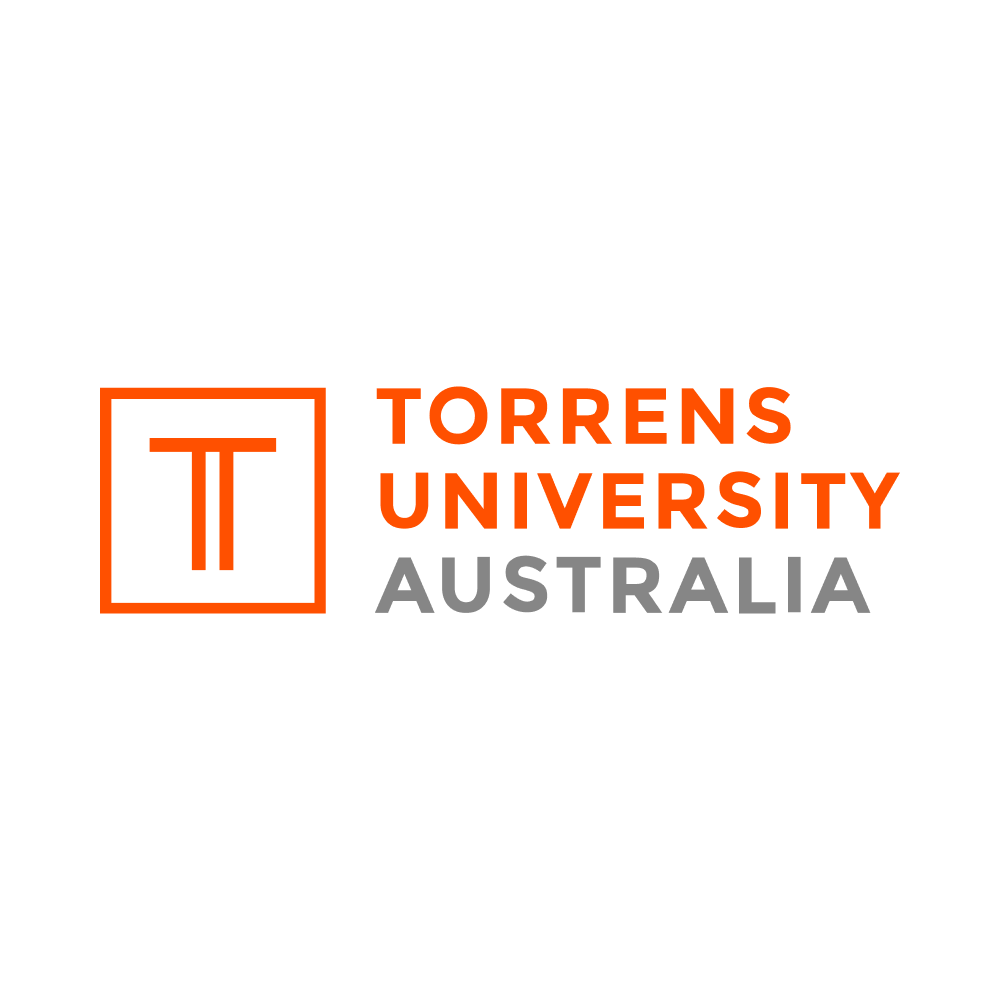
The business environment is constantly evolving and can even be volatile in the face of unforeseen circumstances. Economic uncertainty can linger around the globe and change the way we work. But it can also be an exciting time for business, and many industries can grow and thrive. So, what does this mean for your career?
Businesses in thriving industries can expand and offer staff job security and attractive salary packages. There can also be more jobs available and more opportunities to be part of innovative teams. A growing industry can be challenging, but it can also present opportunities for those prepared to retrain, upskill or embark on further education.
Want to know how to future-proof your career? We’ve done the hard work for you and found the fastest-growing industries in Australia. Here are our top six, where new opportunities are available for workers in a variety of roles.
Which business industry is growing the fastest?
The business industries that are growing the fastest in Australia include:
- Healthcare
- Software and analytics
- Renewable energy
- Virtual reality
- Tourism
- E-commerce
1. Healthcare
According to the Australian Health Practitioner Regulation Agency (Ahpra), in August 2023, there were a total of 877,119 registered health practitioners in Australia across all professions. This was an 18 per cent increase on the 744,437 registered practitioners in June 2019.
Ahpra reports that in the 12 months to July 2023, 5,270 new practitioners were registering every month on average to work in Australia’s health systems. This includes 700 new medical practitioners and almost 3,000 new nurses a month, powered by internationally trained workers and local graduates. We expect the numbers to continue to grow, as the Australian Government budget for 2024-25 projects $112.7 billion in health spending to deliver a better healthcare system.
Healthcare is one of Australia’s biggest industries and largest employer. The 2024 National Industry Overview report revealed that from August 2023 to August 2024, the Health Care and Social Assistance industry experienced the highest increase in employment compared to others, from 15,600 to 86,400 employees.
We’ve also seen significant investment in innovative technology platforms and software solutions to improve patient outcomes in Australia. This opens up new career opportunities for job seekers with technical training or those prepared to upskill and retrain through postgraduate study.
While this industry has faced unprecedented challenges over the last three years, the road ahead looks bright for those wanting to pursue careers in healthcare.
If you’re looking to advance your career in healthcare by entering a senior role, consider pursuing an MBA with a specialisation in healthcare management. Besides gaining the knowledge and skills to become a well-rounded leader, you will also be exposed to contemporary and relevant issues in the healthcare industry.


The University of Adelaide 100% online Master of Business Administration (Health Management) will build your confidence to lead, expand your network and advance your career in the healthcare industry—all on your terms. You will emerge with the vision and confidence to drive real organisational, industry or even societal change.
This innovative online learning environment has all the support, networking and flexibility your busy work and family life demands. Open doors in public health sector and apply now for an online MBA (Health Management) with South Australia’s leading university for graduate employability*.
* QS Graduate Employability Ranking, 2022.


The Master of Business Administration (Healthcare Management) provides a comprehensive foundation in core business principles, with a specialisation in healthcare management. This specialisation is designed to prepare aspiring leaders to learn the latest concepts which can be applied to health and aged care settings.
The MBA (Healthcare Management) is designed for the future, with sustainability built in. You will learn how to take advantage of technology to test and better manage quality and safe care whilst tackling the challenges of the digital age. This MBA course has industry engagement embedded, with a total of up to 36 weeks of experience available through Work Integrated Learning and industry programs.
Healthcare managers are the professionals who are involved in decision-making in hospitals, aged care and other health related organisations. They are responsible for designing policies, managing human resources, improving the business unit and managing the operations including the procurement and supply of hospital equipment in addition to improving the quality of patient care.
2. Software and analytics
Of all the growing industries in Australia, software and analytics has to be one of the most dynamic. Businesses need to constantly adapt digital technologies to meet their customers’ needs. According to a recent study from Gartner, spending on IT in Australia is expected to hit $147 billion in 2025, equating to an 8.7 per cent increase from 2024.
Australian businesses are also undergoing wider digital transformations, increasing the strong demand for technology workers. ACS Digital Pulse reported that there are over one million technology workers in Australia in 2024, which is a 60 per cent increase since 2014. ACS also forecasted that 1.3 million tech employees will be needed by 2030 to meet industry demands.
Anna Furlong, the Executive Director of The Virtual IT Department, says, “The software and analytics industry is undergoing a remarkable change. Software development roles are expanding, and new specialisations, such as cloud architects and cybersecurity analysts, are taking shape. As organisations increasingly leverage complex, interconnected systems, there’s a growing demand for professionals skilled in IoT [Internet of Things] development, DevOps [software development and IT operations] engineering and more.”
AI, too, is changing everything. The careers now emerging in this space are numerous. Anna believes the most successful careers will be those that adapt to AI being integrated with our way of working. “From AI ethicists ensuring the moral integrity of algorithms to machine learning engineers crafting predictive models, the roles are diverse and multidimensional,” Anna says. “AI hardware specialists work on optimising physical components for AI tasks. There are plenty of careers that are going to need to adapt to the AI phenomenon.”
You can find plenty of short courses that can help you upskill in digital technology like AI. Many of these courses are delivered online, allowing you to learn at your own pace. By taking an AI short course, you can develop an understanding of how AI is leveraged across various industries and the best practices for using it. Having AI skills helps you to remain relevant in a competitive job market.


This course explains generative AI's foundational concepts and terminology and how to drive business value with generative AI. You are introduced to AWS generative AI services and strategies to choose services best suited for your enterprise's use case. Lastly, in this course, you learn the factors you need to consider to get started with generative AI in your enterprise.
- Learn at your own pace.
- No prerequisites required.


Artificial Intelligence (AI) presents organisations with vast opportunity for efficiency, automation, enhanced customer experience, product and service innovation, security and risk management, even decision-making and scalability. Implementing existing AI tools or even developing your own AI products, involves a process of exploration and consideration of the guardrails that must be put in place relevant to your particular organisation.
This course aims to provide a unique perspective of AI as it relates to decision-makers and managers across various functional roles and industries. It does not seek to explain what AI is and how it works; rather explore why and how AI can be implemented in an organisation to spark innovation and achieve sustainable growth.
If you or your team are experimenting with AI, this course is for you. It is designed to explain these key considerations when augmenting with AI to de-risk and set your business up for sustainable success.
- Choose between a 2-day in-person session or an online learning option over 3 weeks.
- Receive a digital badge and 2.00 CEMD points.
- Learn from expert facilitators in data analytics, AI, data governance and cyber security.
3. Renewable energy
The Australian Government has promised billions of dollars in an effort to reach the nation’s emissions reduction target of 43 per cent below 2005 levels by 2030. Each state in Australia has also committed to net zero by 2050.
While the Clean Energy Council reports that Australia will need to considerably increase investment in the renewables sector to remain competitive, Prime Minister Anthony Albanese has promised to do more to help fast-track the switch to low emissions. And the sector is growing.
There’s an opportunity for significant investment in clean-energy technologies, such as solar, wind, hydro and big battery storage. Along with that investment comes jobs. According to the Clean Energy Council, demand already outstrips supply in the clean energy workforce, and that demand will only increase in the coming years. In 2023, it was reported that the clean energy supply workforce will likely be required to grow to 84,000 by 2050.
There are many untapped opportunities in this sector, and with skill shortages nationwide, skilled workers will be highly employable.
In response to this rising demand, some universities in Australia offer postgraduate programs that incorporate sustainability in their curriculum, with units such as Sustainable Health Economics, Sustainable Enterprise and Sustainable Entrepreneurship. These courses aim to develop socially responsible graduates who can make informed decisions that support the environment, society and the economy.


The Master of Economics of Sustainability advances your career with high-level skills and knowledge in ecological economics, modern monetary theory and financial systems.
Learn to analyse economic and ecological issues, discuss economic reform proposals, evaluate consequences of economic policy changes and apply empirical research methods in varying contexts. This unique course is designed to meet the growing global demand for high-quality graduates in the field of economics of sustainable wellbeing. Graduation from this degree will provide you with expanded work opportunities as well as long-term career advancement in a world that is transitioning towards wellbeing budgets and zero net carbon emissions. The Master of Economics of Sustainability degree also provides a pathway to doctoral studies.


The Master of Business Administration Sustainable Leadership allows you to study a broader range of specialist elective units based on your career interests over 2 years full-time (or part-time equivalent).
You will have a deep understanding of genuine sustainable business practice. This course will guide you through how businesses can operate profitably and in a manner that supports society, the economy and the environment. In addition to the traditional core MBA business competencies, this course will provide the essential knowledge and skills required by the sustainable enterprises and businesses of the future, including developing practical sustainability and CSR strategy, designing and implementing sustainability initiatives, as well as sustainability disclosure and reporting. You can also undertake an applied professional business placement or select specialist electives that support your chosen career pathway.
4. Virtual reality
Virtual reality (VR) isn’t just gaming. VR is used in medicine, education, the automotive, real estate, hospitality and fashion industries. As existing technology, such as 3D effects, motion tracking and cloud-based technology, continues improving, the market will only increase.
“VR and augmented reality (AR) have transitioned from gimmicky technologies to powerful tools reshaping how we engage with tech,” says Anna. “Industries across the board are harnessing their potential for training, simulations, and enhanced user experiences. We are just getting started in this space. Their growth trajectory suggests an even more immersive future.”
Looking to get in? Careers in this growth industry are becoming highly sought after, and you may just find your professional fit as an engineer, coder, game artist, software developer or project manager. But as a broader range of industries adopts AR and VR, other professionals with AR and VR experience will also become more employable.
5. Tourism
There’s no doubt that COVID-19 had a devastating effect on tourism, leading to a collapse in international travel and devastating all sectors of the industry. But tourism operators are now recovered, particularly on the domestic front, making tourism one of our most exciting re-emerging industries.
The Reserve Bank of Australia reported that spending on domestic tourism had recovered and was above pre-COVID-19 levels in late 2022. Australian tourism operators are enjoying a strong domestic market. Tourism Research Australia (TRA) forecasted that domestic expenditure, including overnight and day trips, is expected to total almost $180 billion by 2027.
In 2024, the International Air Transport Association revealed that the global air passenger demand hit a record high, with the total full-year traffic increasing by 10.4 per cent compared to the previous year. This demonstrates how tourism is a thriving industry on a global scale.
Closer to home, TRA also expects international visitor spending to grow to $48.8 billion by 2027.
With our politically stable and resilient economy, Australia is low-risk for tourism operators and investors. The government also provides various tourism grants to support the sector. There is much to be optimistic about and plenty of opportunities for workers and investors in the industry.
6. E-commerce
During COVID-19, Australians embraced online shopping like never before, and while social distancing and lockdowns seem to be a thing of the past, our love of online shopping is still going strong.
Cost-of-living pressures are having an impact. Australia Post reported in a quarterly e-commerce update that consumers in the first half of 2023 slowed their spending. However, they became more strategic in their shopping habits and looked for ways to maximise every shop. They sought ways to save money via sales events like Click Frenzy, looking for cheaper alternatives, and expecting free delivery and easy returns.
According to McKinsey & Company, e-commerce retailers of the future will need to change focus, proactively connecting with their customers by creating highly personalised and seamless experiences and becoming an essential part of their lives online and offline. The new wave of successful e-commerce businesses will become essential to the customer through a deep level of engagement.
To succeed in this space, businesses must employ digital leaders and talent who can execute cultural change. As well as skills in data science, design and cloud engineering, they will need to be customer-focused, creative and willing to take risks.
As a result, there are exciting opportunities for workers in this space. Market research analysts, web developers and computer systems analysts are just some of those in demand.
Professionals working or looking to work in e-commerce are usually required to have competent knowledge in applying various digital tools and techniques. If you want to enhance your digital skills that are relevant in this field, consider pursuing a postgraduate course in digital marketing. You can learn about customer experience, marketing research and marketing analytics in the digital context.


Become a digital marketing expert
Navigate the fast-paced world of digital marketing with a Master of Digital Marketing at Melbourne University. Develop specialised knowledge and skills through a suite of advanced subjects. Gain hands-on experience with leading companies and explore how digital marketing theories apply in real-world business contexts. Graduate with in-demand skills, ready to step into this exciting and ever-changing profession.
Key Features
- Build digital marketing skills and knowledge. Develop expertise in social media marketing, channel management, content marketing, retail, metrics and analytics.
- Road test your new skills in the industry. Develop job-ready skills and build your professional networks with an industry internship in your area of interest.
- Learn from industry experts. Explore best-practice examples from industry thought leaders and learn from case studies presented by marketing professionals.
Future-ready your career with an MBA
The world is changing rapidly, and for those ready to retrain and upskill, there are a plethora of opportunities in the fastest-growing industries in Australia. Skills such as cognitive flexibility, digital literacy, emotional intelligence, decision-making and innovation are highly regarded by employers. An MBA can provide you with the skills you’ll need.
Whether you’re looking for a professional pivot or simply want to accelerate your current career, an MBA can open up a world of opportunities, and open the door to more generous salaries. Discover various MBA courses in Australia to start your journey.




















